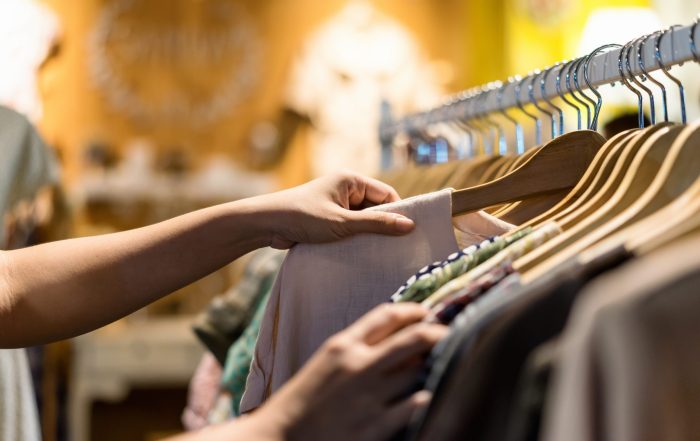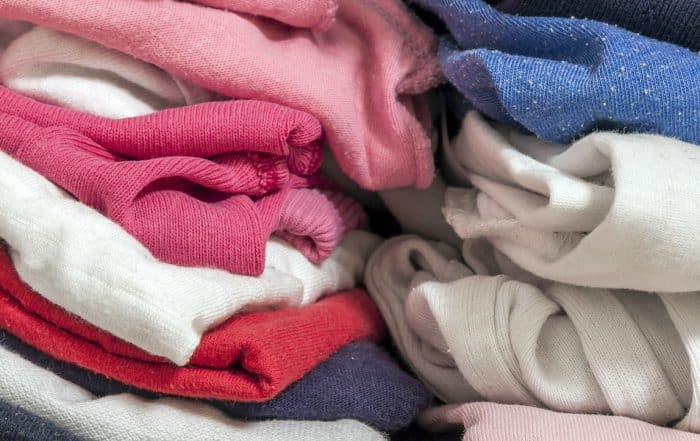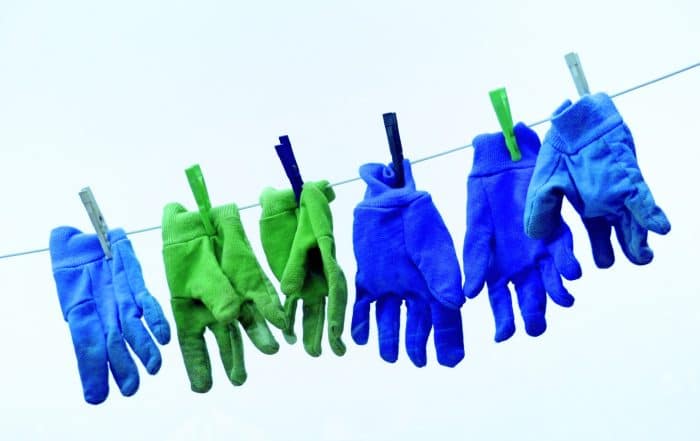Shell koopt uniformen duurzaam in
Veel bedrijven willen duurzamer inkopen, maar met welk product of welke dienst begin je? En hoe pak je het verder aan? We nemen een kijkje in de keuken van Shell, waar Nadine Vincent de uniformen van tankstation medewerkers verduurzaamt. “Onze belangrijkste les is dat er bij onze huidige leverancier al veel mogelijk bleek.”
Via het initiatief Inkopen met Impact – dat Amsterdam Economic Board met partners in gang heeft gezet – werken tientallen bedrijven, overheden en onderwijsinstellingen aan het verduurzamen van hun inkoop. Zo stimuleren ze betaalbaar, duurzaam en lokaal vraag en aanbod van producten en diensten die bijdragen aan een slimme, groene en gezonde toekomst van de Metropool Amsterdam.
Shell is al vanaf het begin betrokken bij dit initiatief en volgde in 2020 een impacttrack. Amsterdam Economic Board organiseerde deze bijeenkomsten voor deelnemers vanuit verschillende afdelingen van organisaties binnen de Metropoolregio. De deelnemers namen elk minimaal één concreet inkooptraject mee, waarmee zij binnen een half jaar impact wilden maken. Doel van de impacttracks was: zorgen dat opgedane kennis direct wordt geborgd. “Wij hadden nog geen standaardprocedure voor het verduurzamen van inkoopcategorieën en besloten toen om een productgroep te kiezen en van dat proces te leren”, vertelt Nadine Vincent, Supply Chain Lead bij Shell.
Uniformen van tankstation medewerkers
Die productgroep werd uniformen van tankstation medewerkers. Omdat het een tastbaar en herkenbaar product is, maar ook om het product goed schaalbaar is. Dit project focust zich op de Benelux en Frankrijk, maar wereldwijd heeft Shell in meer dan 70 landen tankstations. Bovendien werkt de textielindustrie hard aan verduurzaming, waardoor er ook al voldoende aanbod zou zijn.
Dat aanbod loopt nogal uiteen, bleek toen Vincent een groep leveranciers om meer informatie vroeg. “We gaven alle partijen maximale vrijheid om creatieve oplossingen te presenteren. Wat zou het meest duurzame product zijn dat de leverancier kon leveren, hoe zou hij dat verpakken en het logo erop vastmaken?”
‘Omdat Shell zo’n groot bedrijf is, kunnen we helpen de markt voor duurzame producten te vergroten’
De reacties die Shell kreeg liepen enorm uiteen, maar waren veelbelovend. Na een interne presentatie kreeg Vincent toestemming voor het uitschrijven van een tender voor de verduurzaming van de huidige lijn uniformen en voor de kleding van het nieuwe concept Shell Café. Vincent: “Een dilemma was dat we eigenlijk heel tevreden waren met De Waard Beroepskleding BV, onze leverancier: de prijs, kwaliteit en levering waren allemaal goed. Dankzij deze tender kwamen we erachter dat deze leverancier eigenlijk al heel veel kon met duurzaam textiel en ook veel andere duurzame initiatieven had.”
Minder uitstoot, minder water
Na een zorgvuldige analyse besloot Shell met De Waard door te gaan. De leverancier bood in de tender onder meer een nieuwe stof aan. Een blend van gerecycled polyester, BCI-katoen en kapok, dat duurzamer is omdat het aan een boom groeit en relatief weinig water nodig heeft. Voor de productie van deze blend is ongeveer 90 procent minder uitstoot en 70 procent minder water nodig dan de huidige uniformen van Shell in de Benelux en Frankrijk. Shell test momenteel met een groep medewerkers het draagcomfort en de kwaliteit bij intensief gebruik. De Waard is ondertussen ook bezig met een project om een deel van de kledingproductie te verplaatsen naar Europa, zodat er minder afstand in de keten hoeft worden afgelegd.
Los van de productverduurzaming denkt Vincent ook na over de processen rondom het verstrekken en inzamelen van de kleding, iets waar Shell zelf keuzes in moet maken. Vincent: “We bieden ons personeel nu zo’n 40 verschillende items aan en onderzoeken of we niet terug kunnen gaan naar zo’n 20 verschillende producten. En we denken na over een end-of-life-oplossing, een inzamelpunt op elk station dat misschien kan worden geleegd door de vele bevoorradingsbusjes die er dagelijks komen.”
Direct aan de slag met duurzaam inkopen in jouw organisatie? Lees de quickstarts!
Waarde laten liggen
De belangrijkste les die Vincent en haar collega’s leerden van dit proces? “Wij dachten: als dit bij deze leverancier al mogelijk is, wat voor waarde laten we dan nog liggen in de rest van de supply chain? Shell is natuurlijk een grote wereldwijde speler op de energiemarkt, en veel nadruk ligt op de energietransitie en overgang naar duurzame energiebronnen. Maar deze relatief kleine dingen zijn ook belangrijk en moeten niet vergeten worden. Doen we dat niet, dan laten we een hoop liggen. En juist omdat we zo’n groot bedrijf zijn, kunnen we helpen om de markt voor duurzame producten te vergroten en ontwikkeling te versnellen.”
Nee, de medewerkers van Shell lopen nog niet rond met de nieuwe, duurzamere kleding. Inkopen met impact is bij grotere organisaties nu eenmaal een proces waar maanden overheen gaan. Vincent hoopt dat ze met de lessen van dit proces bijdraagt aan de cultuurverandering die gaande is bij Shell. “We hebben nu al afgesproken dat duurzaamheid een belangrijke pijler wordt bij hoe we leveranciers gaan beoordelen, zodat het geïntegreerd wordt in onze processen. En we blijven het initiatief Inkopen met Impact ook volgen. Tijdens de impacttrack hebben we veel hulp gekregen. Je merkt dat er in de regio veel energie zit achter dit thema en dat mensen hun kennis en kunde graag delen. Dat heeft mij in elk geval enorm geholpen.”
Doe mee met softshell jacks
Komend najaar start Amsterdam Economic Board met partners een initiatief rondom softshells. Dat zijn die lekkere jacks, die zowel voor medewerkers als voor events worden ingezet. We gebruiken voor dit initiatief een vernieuwend ontwerp, dat de jacks heel geschikt maakt voor recycling. De afgedankte jassen zijn de grondstof voor het maken van nieuwe. Win-win dus! Wil je meedoen? Neem dan contact op met Claire Teurlings.
13 juni 2022
Meer weten over
Neem contact op
Blijf jij ook op de hoogte?
8x per jaar nieuws en events uit de regio: schrijf je in voor de Board Update nieuwsbrief
Deel dit artikel
Wil je op de hoogte blijven?
Volg ons dagelijks op LinkedIn en schrijf je in voor de Board Update nieuwsbrief.
Lees ook deze berichten
- De innovatieve kracht van onze regionale industrie zorgt samen met de unieke ...
- Met de Learn & Share-serie Scaling up Startups brengen we professionals uit ...
- Incision is gekozen als de finalist voor de Nationale Zorginnovatieprijs 2026! Dit innovatieve ...




